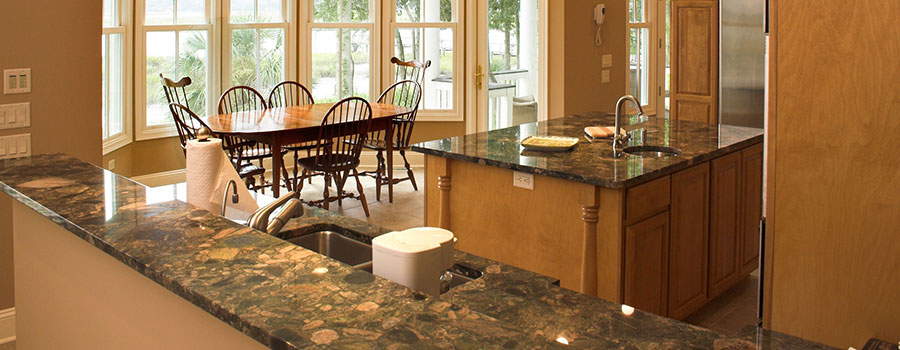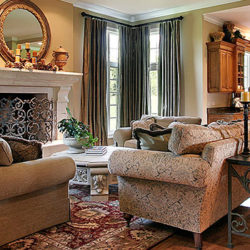As much as home renovations come with their perks, such as increasing the functionality of the house and increasing its value, there are some situations when you don’t have to, as in most cases, you end up doing the wrong things.
To help you out, here are situations when not to renovate:
You want to make your house more appealing to sellers
Even if you don’t go overboard with your options, you should avoid upgrading your home to make it more enticing to buyers. If you have a creaky staircase or other evident flaws, make sure to fix them before you place the house on the market, because the home inspector will undoubtedly see them.
Hiring condo remodel experts or other professionals to renovate the house may not be a good idea if you’re only doing it to sell the house and make some last-minute cosmetic changes.
If you renovate your kitchen or bathrooms, no matter the colors and finishes you use, there will be a buyer who will not like it and won’t want to pay for the work you just completed.
For example, if you design a white kitchen, some buyers will prefer blond wood. You create a step-in shower in the master bathroom and the buyer likes to bathe.
You should note that we aren’t saying you should never renovate, but if you do so soon before putting your property for sale, you are unlikely to recoup your investment, especially since most homeowners will not pay more for certain features.
If you are fully renovating the house for sale, don’t do it. Some of the things you can do instead include painting a room, fixing issues in a floor, replacing a cracked window, or cleaning up wear and tear on window sills.
These are cosmetic fixes that show that you care for your home, and they aren’t expensive.
Your home has structural problems
Structural problems, such as eroding foundation walls, underpinning, and cracked rocks, can quickly become prohibitively expensive.
Unfortunately, it’s difficult to estimate the full cost until the work begins and you can see what you’re dealing with.
And, while it is necessary to address structural concerns that are crucial to your home’s safety, renovations that may be more difficult due to structural issues may be reasons to forego those modifications.
If you are having structural issues with your property, before you embark on the renovation journey, have a talk with your contractor and find out whether it’s a wise move.
The last thing you want to do is to start a project and find out that it’s too expensive for your budget. Have a discussion about it beforehand with your contractor and only proceed with it after you find out that it’s a good move.
You feel the project is a simple DIY
Home renovations can be problematic if you get ahead of yourself. There is so much more to home renovation than what TV shows you, it’s no wonder people get in over their heads and think they can do everything by themselves.
One common mistake homeowners make is to attempt renovations themselves and then find it difficult to complete and they have to locate a professional to complete the work.
If you are planning to conduct a significant makeover, you must hire the correct team, which includes an architect, designer and general contractor.
If you don’t do this, you are preparing yourself for calamity. If hiring a full crew is not feasible, doing a home addition or renovation may not be the best option for you.
Even if you are a dab hand at DIY projects, you should think about the three T’s: time, tools, and talent. First, make sure you have the time to take on the project, including all the research you need to do before getting started.
Next, take inventory of your tools. If you don’t already have the essential tools, you’ll need to decide whether to rent or buy them, as well as how much each will cost.
And if you’re thinking about buying the instruments, consider whether you’ll ever use them again. Of course, you don’t want to spend a lot of money on tools that you are going to use only once.
Then assess your talent: have you previously worked on a similar project? Do you understand how to use the tools involved? Are you capable of completing the project effectively and safely?
If the answer is no, consider hiring a professional to prevent the hazards involved with DIY undertakings that exceed your degree of knowledge. Or perhaps reconsider the addition or refurbishment entirely.
You are getting rid of valuable space
Some homeowners enjoy tearing down walls to build larger rooms. However, you should proceed with caution while charging the home’s floor plan.
Some homeowners want a larger master suite, so they combine two bedrooms and two bathrooms into one enormous suite.
As much as this might work for you, you stand to take a big hit to your property value when you want to sell it. This is because doing the renovation severely limits the audience who would be interested in your home. Also, the cost of undoing or otherwise fixing what you did would be high.
If you will be removing a bedroom, bathroom or any other vital part of the house, you should avoid the renovation because it will most likely end up being problematic in the future.
Instead of changing the floor plan of the house, you should consider changing the look of the room. For example, if the bathroom looks too small, consider installing mirrors that will give the impression of space.
Parting shot
You should avoid making any renovations to the house if you are having the above-mentioned scenarios. If you decide to go ahead with the tasks, don’t simply do it by yourself. Instead, take your time to find home addition contractors DC who will hold your hand and do the work for you.
As a rule of thumb, work with experienced contractors who have handled similar projects before and will make your work easy.



